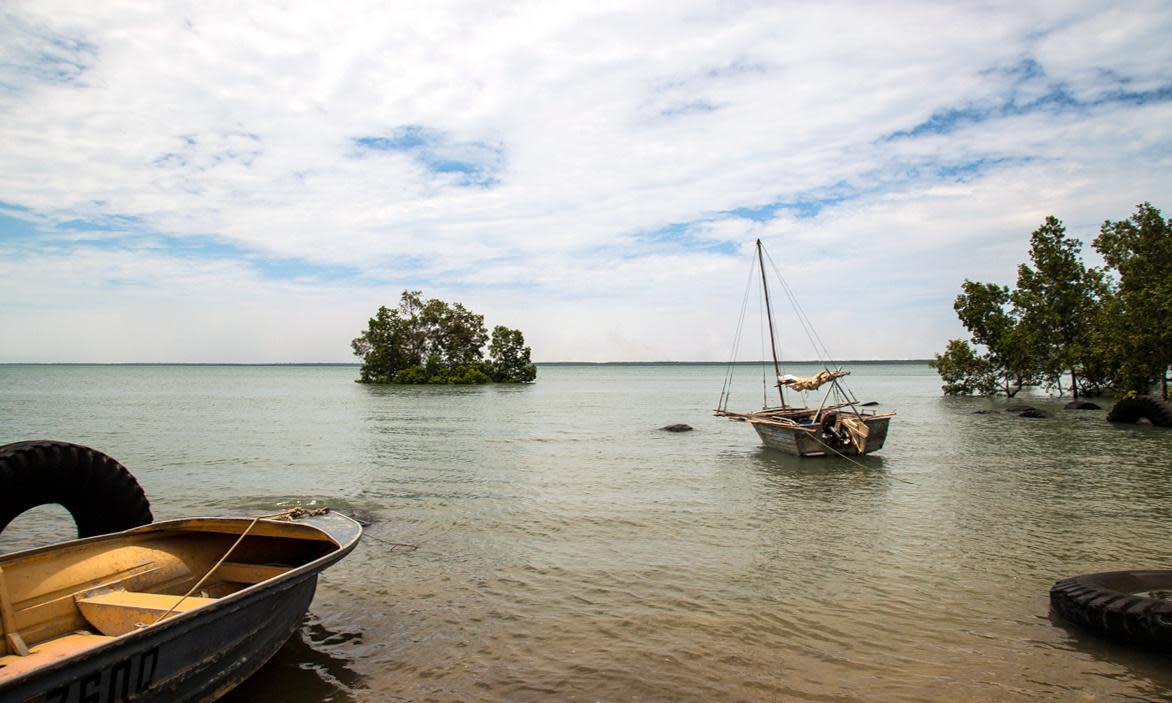Australia will seek to return Rwandans to PNG after unauthorised arrival in Torres Strait

The Australian government will seek to persuade Papua New Guinea to accept the return of five Rwandans found in the Torres Strait in a bid to avert sending them to Nauru.
But Australia will require safeguards that the five men, who have claimed asylum, will not be returned to a country where they face persecution, otherwise it will activate its harsh Pacific solution of offshore detention.
On Tuesday Guardian Australia revealed the arrival of the five “unauthorised maritime arrivals”, found on Saibai Island in the strait off Cape York in Australia’s north-east.
The men are citizens of Rwanda who arrived from the Democratic Republic of Congo, reportedly after travelling through Indonesia to Papua New Guinea, the mainland of which is just 4km from Saibai Island.
Related: Five men in custody after ‘unauthorised’ crossing into Australia through Torres Strait
After undergoing medical checks the group is being held on a navy patrol boat while Australian authorities engage with PNG.
But on Friday the PNG chief migration officer, Wellington Navasivu, told Guardian Australia: “PNG has yet to receive any formal communication from Australia on this matter.”
The foreign affairs minister, Justin Tkatchenko, said it was “news to me … this is the first I am hearing about this”.
According to plans for the group, the Australian government’s preference is to send them to PNG although it acknowledges that non-refoulement obligations may make this option unviable.
Alternatives including ministerial grant of a visa were rejected on the basis it might be cast as a successful people-smuggling venture and create a pull factor for other boats.
Onshore detention is considered impossible, as the high court’s NZYQ ruling would require the release of anyone the government is not able to deport.
If PNG refuses to accept the men, the current plan is to send them to Nauru. In October Guardian Australia revealed a group of 11 asylum seekers were sent to Nauru, the first such transfer in nine years.
People-smuggling ventures reached Western Australia in November and February, resulting in further transfers to Nauru and heightening political criticism by the Coalition opposition against the Labor government’s handling of borders.
On Tuesday the shadow home affairs minister, James Paterson, said the men found on Saibai would “be the fourth boat in just six months that have reached Australian territory under this government’s watch”.
“Labor has clearly lost control of the borders here,” he told Sky News.
Arrivals of Papua New Guineans in the Torres Strait are not considered part of Operation Sovereign Borders because they are dealt with by a protocol to return to PNG. But arrivals of citizens of other countries who use the islands off PNG to claim asylum in Australia are considerably rarer.
Related: Asylum seekers sent to Nauru by Australian government only months after last detainees were removed
In August 2017 under the Coalition government Australian authorities intercepted a boat carrying six Chinese nationals and an alleged Papua New Guinean people smuggler, who reached Saibai Island.
On Tuesday an Australian Border Force spokesperson said of the most recent arrivals: “The ABF does not comment on operational matters.
“ABF has well established operational processes to manage irregular movements of people in the Torres Strait.”
The immigration minister, Andrew Giles, on Friday declined to provide further details when asked about the basis for the five men’s protection claims and how Australia could guarantee they would not be refouled.
“You won’t be surprised that the answer is that these are matters that are about Operations Sovereign Borders and, consistent with a longstanding policy of successive governments, I won’t be commenting on that,” he told reporters in Melbourne.

 Yahoo News
Yahoo News 
